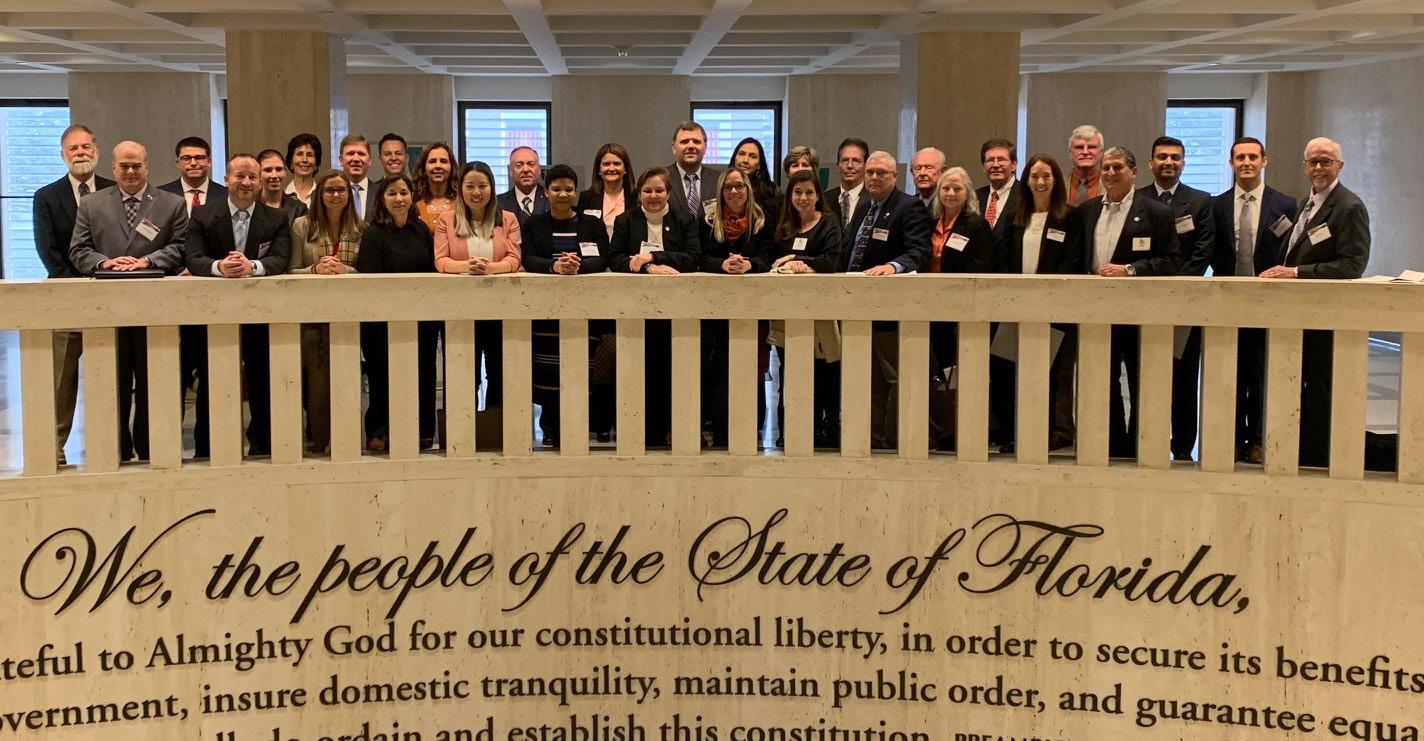
3 minute read
FVMA Legislative Chair's Mid-Session Report
from FVMA Advocate Issue 1, 2020
by FVMA
By Dr. Richard B. Williams

Advertisement
Our 2020 FVMA delegates inside the state Capitol building
At the midway point of the 2020 Florida legislative session, the FVMA continues to monitor nearly 40 different bills relating to the veterinary medical profession, animal welfare, student loans, and appropriations. Two of these bills have been the major focus of the FVMA Legislative Committee and Executive Board for the past several weeks.
The first of these bills is Senate Bill 366/House Bill 1015. The FVMA introduced this bill in both the Senate and the House of Representatives these past several years. The bill is meant to address deficiencies in the “Practice Act” as to what constitutes a valid client/patient relationship, and establish a definition of a physical examination. Unfortunately, the House has refused to allow our bill to move forward, as they believe it could be restrictive to unregulated telemedicine, which they seek. Thus,
10 | FVMA ADVOCATE we are once again at a stalemate with leadership this year, and we have been told our bill will “go nowhere.”
The next bill is one which the FVMA strongly opposed as originally written. SB1044/HB621 (commonly referred to as “Allie’s Law”) is an anti-animal cruelty bill involving only dogs and cats. It was presented to us as a simple bill that every veterinarian in the state should support, and it had many co-sponsors in both the House and Senate. Unfortunately, Allie’s Law was not that simple. It was found to be a bill which required mandatory reporting of animal cruelty, without reporter protection for the veterinarian. It also required that the veterinarian either report without direct knowledge of actual abuse, or that the veterinarian contact individuals suspected of abuse and require them to have their pet examined within 24 hours. This places our veterinarians in a

potentially dangerous situation. That was not something we could support for Florida veterinarians.
Thus, at our Legislative Action Days this past January, the FVMA mounted a vigorous campaign of opposition to the bill. We met with both the House and Senate sponsors to directly relay our concerns about these bills. More than 40 of our FVMA delegates met with the senators and representatives of their respective districts to explain our opposition. We were asked to develop alternative language, which we presented to both sponsors within a week, and are presently working to keep veterinary professionals anonymous in public records when reporting animal cruelty. Thanks to our efforts, the Senate bill has been amended to strike all objectionable language. The House bill, which has not been amended, is not scheduled to be heard in any committees. Rest assured, we will continue to monitor these two bills very closely.
One final bill we are watching, although it doesn’t appear it will move to a vote, this year, is the “Ban on Declawing Cats,” which has been introduced in the Senate (SB48). No companion bill was filed in the House, so it should not be able to go anywhere,

this year. The FVMA’s position on declawing is identical to the AVMA’s policy, which was just revised in January, 2020. While the declawing of cats should be discouraged as an elective procedure, the AVMA and FVMA “acknowledge the veterinarian’s right to use professional judgement when deciding how to best protect their individual patients’ health and welfare.”
Richard B. Williams, DVM FVMA Legislative Chair

FVMA Delegates preparing to meet with senators and representatives from their respective districts, fighting on behalf of the Florida veterinary medical profession











